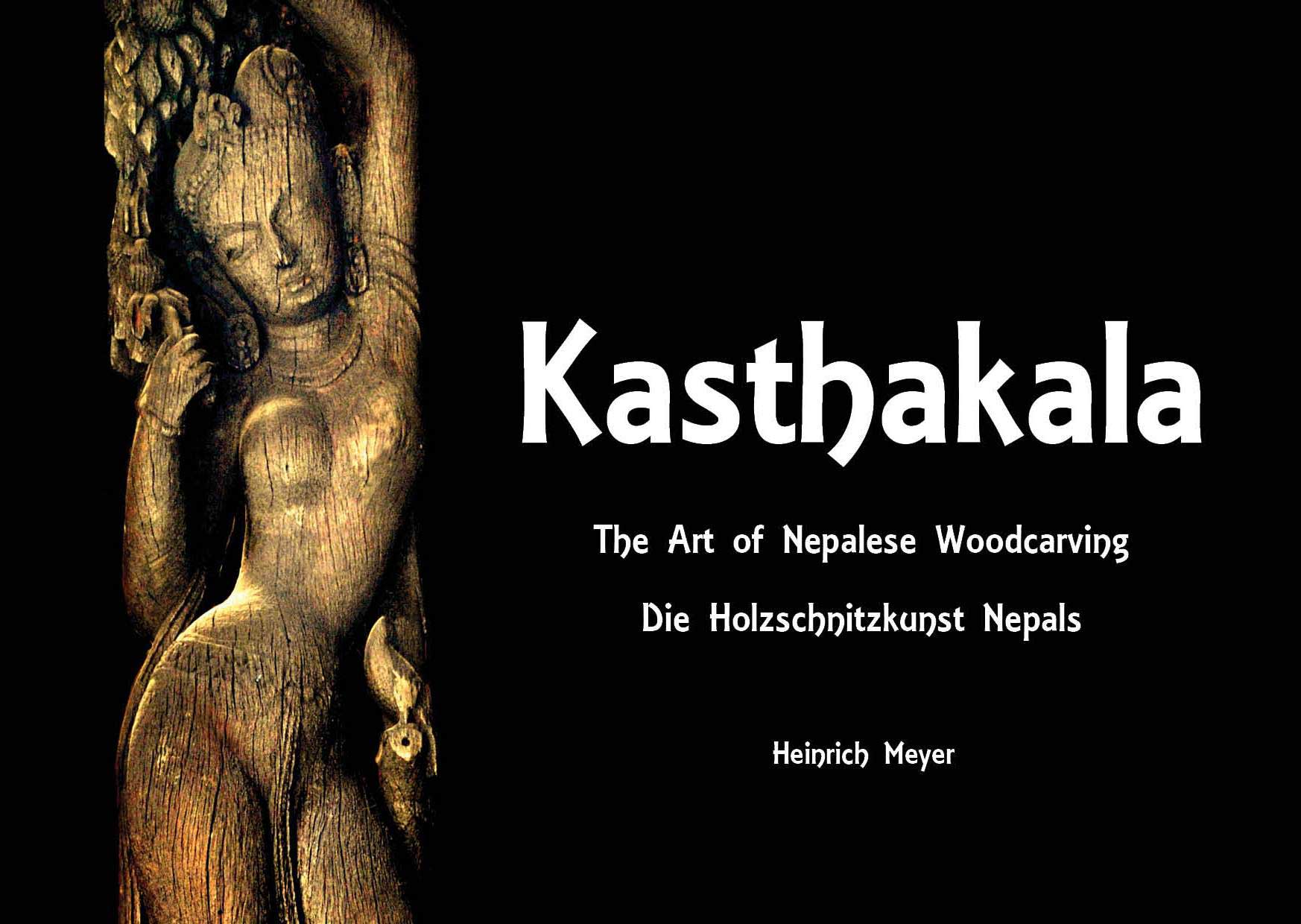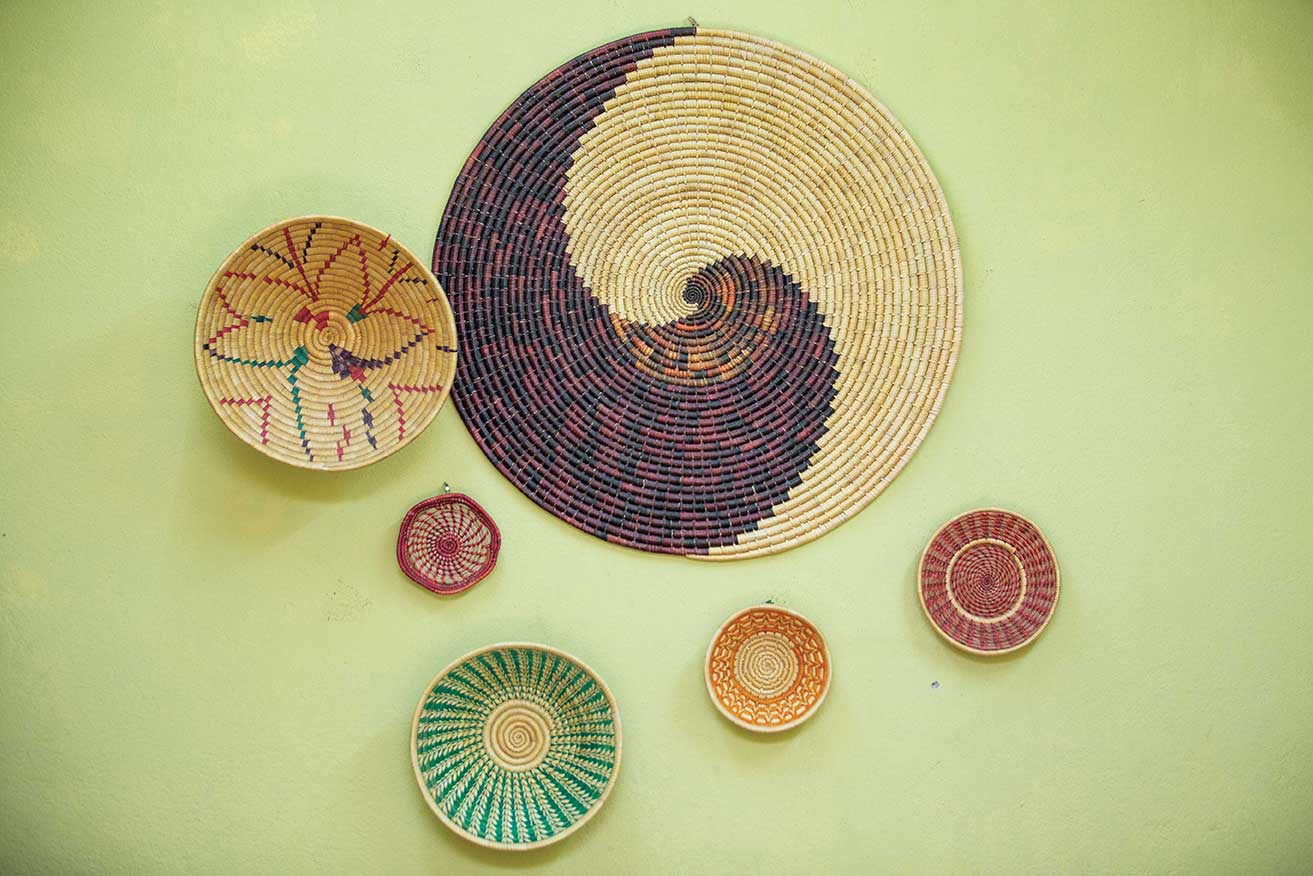His journey began at Radio Nepal, where he started singing for Rs.10 per song. It was there that he was offered some great opportunities to record and explore his musical self with a great deal of independence.
 The fondest memory of my childhood was watching my grandfather weaving janai (the sacred thread) during his spare time, and listening to his antique radio. With a flip of a switch, the giant time machine belonging to Buwa took us back in time to the golden era of Nepali music. The radio’s cassette player had stopped working many years ago, but he used to love turning the tuner knob of the radio to listen to Radio Nepal. That is how I was introduced to singer, song-writer, and composer Deep Shrestha.
The fondest memory of my childhood was watching my grandfather weaving janai (the sacred thread) during his spare time, and listening to his antique radio. With a flip of a switch, the giant time machine belonging to Buwa took us back in time to the golden era of Nepali music. The radio’s cassette player had stopped working many years ago, but he used to love turning the tuner knob of the radio to listen to Radio Nepal. That is how I was introduced to singer, song-writer, and composer Deep Shrestha.
Buwa used his hard hands to slap the back of the old radio for audio clarity, and increased the volume—’Ma paththarko devata hoina, todiyara jodine’ (I am not a stone idol of a god that can be broken and put back together) is the song I heard the most in his bedroom. Then, there was the small hair salon near my home where I listened to Deep Shrestha’s songs while grooming my hair. When the barbers got tired of listening to Hindi songs, they often played the tapes of Narayan Gopal, Gopal Yonjan, Tara Devi, and Deep Shrestha.
It was also radio that inspired Deep Shrestha to dream of a singing career. His father, who was also a singer, was a huge influence on him. He passed away when he was just 12; it was then that he started listening to Hindi songs on the radio. Singers like Asha Bhonsle, Lata Mangeskar, Mahendra Kapoor, and Kishor Kumar were his favorite singers.
Deep was born and brought up in Dharan, where he studied till the intermediate level. He sang at school functions, and finished first on many occasions. They said his voice was feminine, but he won many accolades. His friend circle also had a positive impact on him. They encouraged him to follow his dream to sing. Initially he had no formal training in music, but graduated with a music degree later on. He was also very good at sports during his school days, and still plays badminton to keep himself fit. The two student unions in college, affiliated to different political parties, insisted that he join them, but he wanted to stay away from politics. Later on, he joined a play group from Dharan that performed in front of the late King Mahendra. He stood behind the curtain and sang songs, but the king had spotted the talent behind the curtain. He was so impressed by his performance that he allowed Deep to record as many songs as he wanted in the Radio Nepal studio.
After that, he learnt to play the harmonium and guitar from many people, and learnt many tricks of the trade, as well. His journey began at Radio Nepal, where he started singing for Rs.10 per song. He credits a lot of his success to Radio Nepal, because it was there that he was offered some great opportunities to record and explore his musical self with a great deal of independence.
“I sang the songs of Vijay Shrestha, Shiva Shanker Thapa, and Basanta Thapa. Radio Nepal had a wonderful building and good set of equipment, but still, only single track recording was done,” he reveals. “If someone messed up, they had to re-sing the entire song. Therefore, all of the singers practiced very hard, so that they could complete the track at one go. We usually got it right after three takes, and the song used to be broadcast. I was initially paid 10 rupees for a song, which was later raised to Rs.500. But, since singing was my passion, it didn’t matter what amount I was paid.”
 After recording many songs, and performing at various live shows in Nepal, he was invited by the artists from Darjeeling and Siliguri. That was when he met his wife, Sophiya Gurung, who is a wonderful singer in her own way. He went to the program in Siliguri, where singers like Aruna Lama and Sarala Gurung were performing as well. He constantly met Sophiya, they traveled together, did duets, and fell in love, but couldn’t get married because it was an inter-cast relationship; their families were against the union. They had an eight-year relationship. After a Romeo-Juliet type love affair, they were successful in convincing their parents and got married.
After recording many songs, and performing at various live shows in Nepal, he was invited by the artists from Darjeeling and Siliguri. That was when he met his wife, Sophiya Gurung, who is a wonderful singer in her own way. He went to the program in Siliguri, where singers like Aruna Lama and Sarala Gurung were performing as well. He constantly met Sophiya, they traveled together, did duets, and fell in love, but couldn’t get married because it was an inter-cast relationship; their families were against the union. They had an eight-year relationship. After a Romeo-Juliet type love affair, they were successful in convincing their parents and got married.
However, Sophiya stayed back, and decided to come to Kathmandu only after completion of her bachelor’s degree. Although both of them were talented singers, Sophiya decided to take up the job of an airhostess. Deep feels this decision helped in the smooth sailing of their marriage. He didn’t earn much as a singer, but she made enough and helped to run the household. As a result, they had no money issues.
Deep also had several chances to travel abroad. He went to Russia on a cultural exchange program. The stage was a huge one, and the 45 artists representing Nepal almost disappeared on the giant stage. He expressed his problem to them, which the Russian team understood, and so they reduced its size. The performances he did in Australia in 2004 and 2011 are what he considers as some of his more memorable ones. The charity shows after the 2015 earthquake in Sydney and Adelaide are also ones he fondly remembers.
“‘Jhaskiyecha maan mero’, written by Bhairav Nath Rimal, is the toughest song I have sung. I recorded the song, and it was relatively easy, but performing it live was a different thing all together,” he said. He himself has written quite a few songs. Among them, ‘Suni deu sano chada ko katha’ (Listen to the stories of my childhood), which took a year for him to write; ‘Biteka kura le’ (The days gone by), and ‘Ma ta door dekhi aye, timro naam bokera’ (I have come a long way, carrying your name with me), which was dedicated to his wife Sophiya, are some of his favorites. ‘Ma ta door dekhi aye’ was based on his own experience, describing the time that he couldn’t stay with his wife, and about his short visits to be with her in Darjeeling. There were days when he couldn’t even meet her, on other days he called her on her landline, but that wasn’t a feasible option, since he didn’t want her parents to know.
Deep admires international artists such as The Beatles and The Shadows, as well as the American Latin rock band Santana. He believes that the singers of his era used to sing because singing was their passion; they never earned much, never sang for popularity, and believed in quality more than quantity. “The music of our times will always have a place in people’s hearts,” he declares with satisfaction.
The music scenario has changed a lot since his time, when people used to sit in groups and sing along together, but he feels that today, all people do is plug in the headphones and sing along in a dark room. Satya-Swaroop and Surya Kumar are the current lot of artists he enjoys listening to. He isn’t a fan of the growing trend of remix and cover songs, which introduce the new generation to classical songs. He feels that the singers must present their idea to the original singer and get their views before going ahead with the recording.
Deep has won many awards over the years, including the Gorkha Dakshin Bahu, but the award he got from Radio Nepal in 1972 for the song “Biduwa ko sindoor ko rahar”( The desire of a widow to get married), is what he cherishes the most. His prize was three tolas (34 g) of gold, which he still considers to be priceless. He plans to open a studio in his home in the future. His advice to the new crop of singers is to be self-critical, and not to be swayed by critics.
He has two daughters. The elder, who is a banker, has even sung a duet with him. The younger, who has recently appeared for the SLC examinations, loves playing the guitar, and singing English songs. Deep doesn’t see them pursuing a career as singers, but thinks that it may be an alternative profession for them. On this pleasant note, our conversation came to an end, and taking off the cover of his harmonium and placing his fingers on the keyboard, he started singing ‘Jhaskiyecha maan mero, jhajhalko ma timro’ (I get goose bumps every time I remember you).











